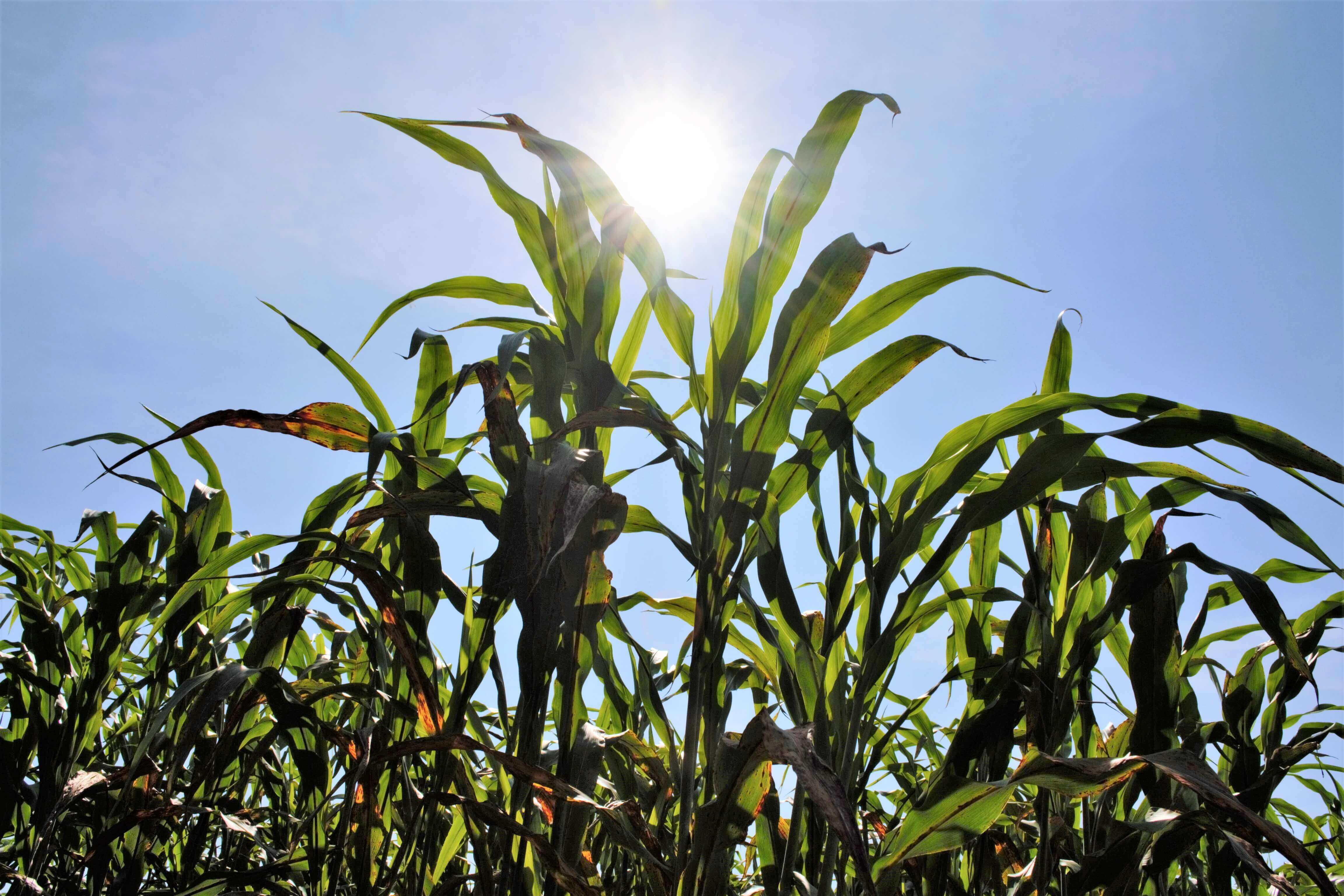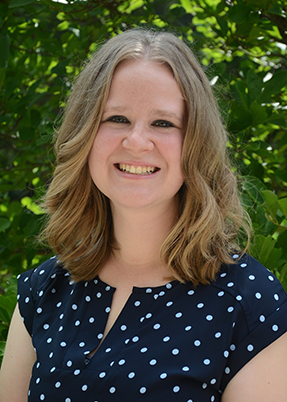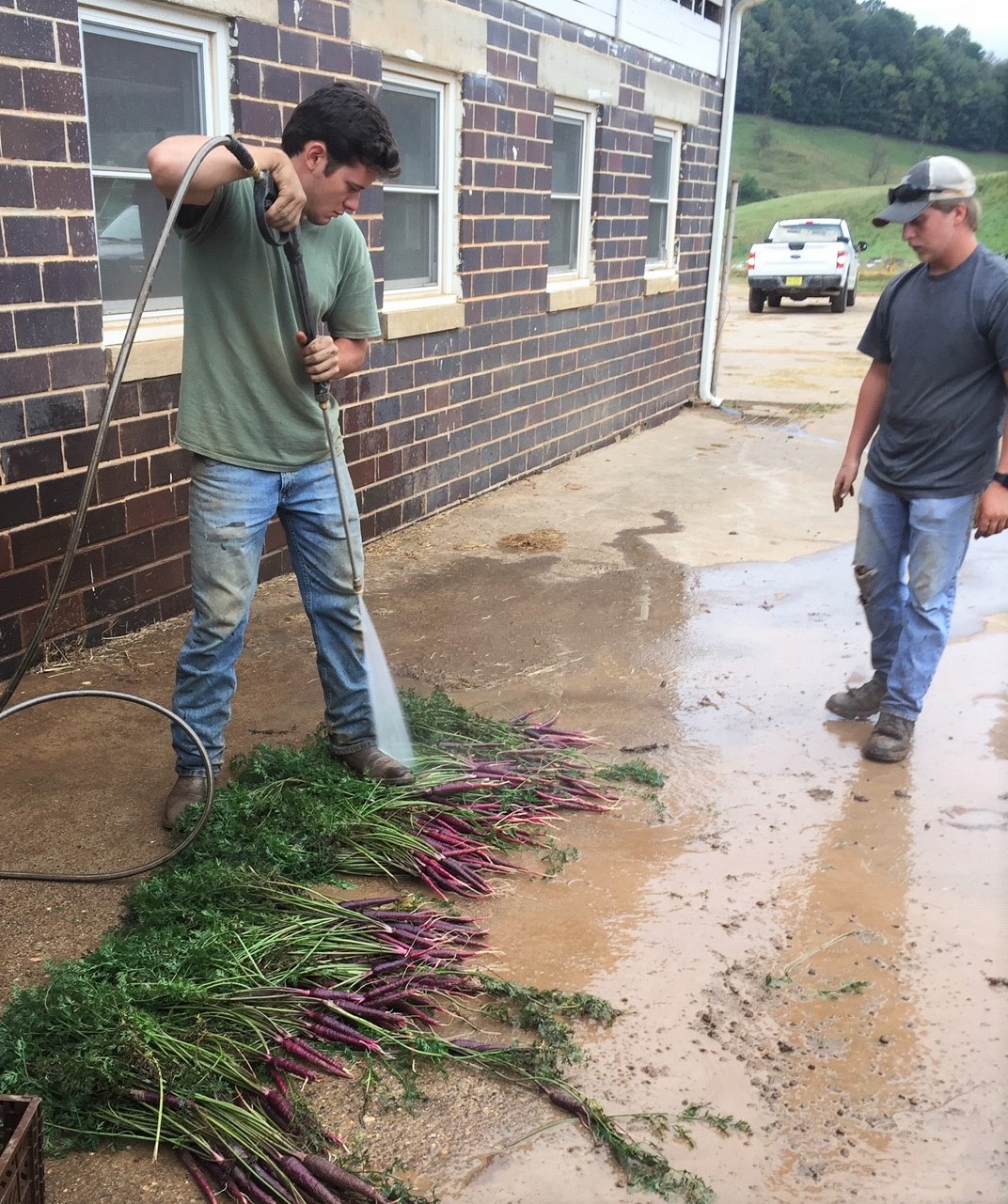
NCBiotech Crop Commercialization Program Supports Industry, Growers, and Researchers

Executive Director
Crop Commercialization Program
The NCBiotech Crop Commercialization Program works with researchers, growers and industry to scope out and investigate opportunities for crop development in North Carolina. Crop Commercialization Executive Director Paul Ulanch and Project Administrator Sarah Frank facilitate the collaboration of industry and academic partners to advance high-value crops and ag tech companies, fueling a virtuous cycle that grows NC's agribusiness sector. I sat down with them to gain more insight into the program and dig into current projects.
Michelle: So what exactly is the Crop Commercialization Program and how is it supporting NC producers and our state?
Paul: We are a program that’s part of NCBiotech’s Ag Sector Development team, which was created several years ago to evaluate and coordinate new high-value crops, as well as improvements for existing crops, for introduction and market development to NC producers. These crops are selected based on increase profit potential for our farmers, which also will strengthen NC’s agribusinesses.
Sarah: We’re able to do this by pulling together teams of industry and university researchers within our state and also from Virginia, South Carolina, and Maryland to provide field tests in the varying soil and climates that our region offers.
Paul: Sarah and I have been able to coordinate the interdisciplinary team to apply for grants and have received multiple grants from the USDA and NCDA to cover the cost of these projects. Alone these researchers would have met roadblocks in the application process, but by creating this collaborative around each project, with NCBiotech leading the process, it frees these researchers to focus on the more important details like the field trials and data collection.

Michelle: So tell me about some of your most exciting projects you have going on right now?
Paul: Well, NCBiotech is currently leading a collaborative effort around biomass sorghum that includes researchers from NC State University and Virginia Tech. This “Mid-Atlantic Biomass Sorghum Collaborative” has field studies already taking place at research stations in both NC and VA. We’re trying to address the feedstock development of this crop, to better optimize its production and create educational resources for the Mid-Atlantic region. This is important because the cellulosic ethanol industry is interested in our region because of its ability to produce quality feedstock and biomass sorghum can fulfill a significant portion of that feedstock supply chain. The problem is that growers don’t currently know how to produce biomass sorghum, so this proposal will help create production parameters and educate them on how to support cellulosic ethanol bio-refineries. We’re starting with biomass sorghum variety evaluations, then we’ll ascertain the optimal production practices, develop an economic model and budgets, consider delivery logistics to help identify operating efficiencies and then we’ll investigate silage storage to optimize harvest and extend bio-refinery use of feedstock. We think this project stands to have a future impact on growers in our state, providing another key crop for rotation.

Program Administrator
Crop Commercialization Program
Sarah: The natural food colorant market has also really grown over the past several years due to industry and consumer demands. Food ingredient crops used for these natural colorants are high-value, but not widely available in the U.S. I’m excited because NC has a great opportunity to get ahead of the market growth by identifying crops for production and processing in our state, like the purple carrot. We have assembled a team of researchers to address the feasibility of growing a high-yield purple carrot crop in our region, which will have the extraction quality that industry is desiring. We are currently testing several varieties in the Tidewater, Piedmont and Mountain regions to determine which is ideal for each regions specific soil and climate. We’ve started harvesting and now they’re being sent for post-harvesting analysis, which will include extracting the colorant so we can compare it with industry’s desired levels. Once that’s complete, we’ll present it to stakeholders so they will see the potential for sourcing purple carrots from NC and consider building a facility here. Through our marketing and outreach efforts, industry engagement has already greatly increased around sourcing NC purple carrots so we’ve begun drafting another project proposal to continue the project around disease management practices and production economics. We think this will greatly further its market development. Oh, and we have growers and extension already signed up for 2020 plant trials!

Michelle: That is exciting and getting to see this process as you post it on Twitter (@NCBiotech_CCP) has been really fascinating as it’s a process I’m just not as familiar with. And let’s be honest purple carrots are just cooler than orange. So, hemp is such a hot topic in our state and honestly around the country. How are you involved in this crop’s integration for North Carolina?
Paul: Most of what you hear about on the news today is around CBD, a cannabinoid compound, which comes from industrial hemp, a crop already growing in our state. However, we need optimized management practices. There were significant losses in the first two growing seasons of 2017 and 2018 due to disease, especially Fusarium spp. Unfortunately, growers did not have the knowledge or access to products to prevent or control this when it appeared. So we’re leading a project to initiate assessment of various disease control methods that include biological, organic and conventional fungicide chemistries, to determine their effectiveness while maintaining a high quality yield. During the process, samples will be extracted to determine if these controls impact cannabinoid quality as compared to those left untreated. Results will give us preliminary data to support the execution of an IR-4 study to obtain label registrations of fungicide products for use on industrial hemp. Additionally, an economic analysis will utilize this data to determine impacts on production costs and grower profits.
Michelle: What’s next for CCP?
Paul: We just received funding to expand the grain and biomass sorghum projects so we can conduct an Integrated Pest Management (IPM) program, which will result in improved management practices for that crop. Also, the North Carolina Tobacco Trust Fund awarded us a grant to evaluate organic disease control methodologies for use on stevia, another high-potential crop for our state. As a natural non-caloric sweetener, there is high demand for organic production of this crop, and North Carolina farmers are ideally suited to grow it. There’s never a dull moment for Sarah and me. Right now we’re in the process of composing proposals for six additional research programs, so stay tuned.
Sarah: And we just launched the Crop Commercialization Program webpage so everyone can stay up-to-date on each project, see photos and its current status. Plus, you can see who we’re working with on each one, and who is awarding the grants. It’s a great resource. And if anyone has an idea for a specialty crop for our area, there’s a link for getting connected to us.
Michelle: We’re excited to share your new page, see what else CCP does and how exactly you work. Big things happening in NC and you all seem to be right in the middle of it.
For more information about CCP, visit the webpage or follow the team on Twitter.
For questions or more information, contact:
Michelle VonCannon
Events and Engagement Manager, Economic Development and Statewide Operations
919-549-8858
| michelle_voncannon@ncbiotech.org
